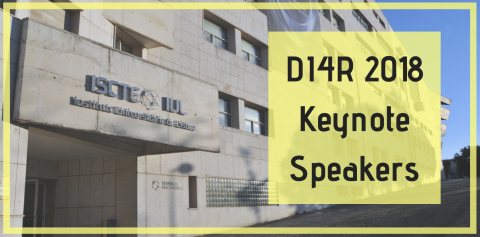FAIR persistent identifiers
Date:
Wednesday, September 28, 2016 - 16:00
Chair: Adam Farqhuar
Session
A key aspect of the integration of PIDs is training and supporting the community. From researchers to integrators and funders, it is crucial to use PIDs to enable FAIR (Findable, Accessible, Interoperable and Reusable - for open science to work, data should have all of these characteristics. See http://dx.doi.org/10.1038/sdata.2016.18) research. Our session is divided into short presentations that will showcase how ORCiD iDs and DOIs are integrated into research systems and connected with other platforms. A presentation on PID integration at CERN will demonstrate the benefits for the research community.
15 mins, The importance of Persistent Identifiers and the Role of THOR
PIDs provide connections between articles, datasets, authors, funders and institutions, enabling better attribution and information on where research originated. THOR is working to integrate PIDs in the services that researchers and institutions actually use.
10 mins, ORCID iDs - Resolving ambiguity in authorship and helping assign credit
ORCID provides persistent identifiers that distinguish researchers from one another. The ORCID registry contains links from these identifiers to others, including articles, data, education, funding, employment, peer reviews and more. Through automated workflows and interoperation with other systems this provides a clearer picture of how research is generated and enables authors to get the credit they deserve for all their academic outputs.
10 mins, DataCite DOIs to Find, Access and Reuse Data
Data forms the foundation of research, yet it is treated by many as a second class citizen. DataCite assigns DOIs to data and maintains a metadata schema suitable to describe all sorts of objects that enables data citation. Almost 700 datacentres around the world are already implementing it.
15 mins, Q&A
10 mins, Cross-platform integrations: ORCID Auto-Update and Crossref/DataCite Event Data
PIDs enable two key services launched during the last year: ORCID Auto-Update ensure that researchers’ ORCID records stay up to date every time their work receive a DOI, and Crossref/DataCite Event Data services track connections and citations between different research objects, enabling new metrics. This demonstration will show how this speeds up the flow of research information, improves the accuracy of data and reduces the burden on researchers of research administration.
10 mins, Disciplinary case: DataCite DOIs and ORCID iDs integration at CERN
CERN maintains a number of tools and services to meet the literature and data needs of the high energy physics (HEP) community. As both a DataCite data centre and an ORCID member, CERN makes use of PIDs for identifying and linking research outputs. The author profiles in INSPIRE, the primary HEP literature aggregator, push and pull works from ORCID. DOIs are reserved for data sets in HEPData at time of submission and are minted upon release. These interconnected systems share metadata to give a more complete picture of a researcher's body of work, providing an example of PIDs in action.
20 mins, Q&A
Target Audience:
Data scientists, librarians and repository managers, integrators, researchers, and publishers.
Benefits for Audience:
Participants will learn how PIDs are beneficial for connecting research output with authors, institutions, funders and publishers, and how these interoperable services will enable opportunities for innovation. Participants will also learn how to integrate PIDs within their own research communities, systems and services. Our session is a great opportunity to discuss further with data experts from three different organisations.
Topic 4: Working with data
| Presenters | Organisation |
| Adam Farquhar | British Library |
| Robin Dasler | CERN |
| Josh Brown | ORCID EU |
| Kristian Garza | DataCite |
Download presentation:



